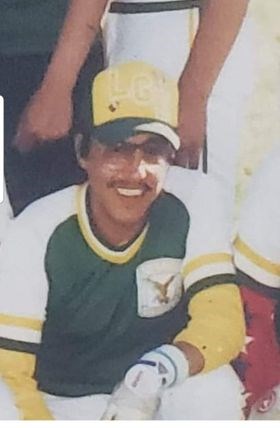SPORTS FEATURE — “He used to fly,” says Eric Lameman’s nephew Gary Lameman, who grew up watching his uncle zoom around the baseball diamond.
“He ate, slept and breathed baseball back in those days,” Lameman recalls. Growing up, Lameman would listen to his late uncle’s stories of the game as well as watch him play his favourite sport — fastball.
Seeing his uncle’s love for the sport is what got Gary hooked on the game as a little boy.
“Watching how easily he played the game, and how much fun he had doing it, It just made me want to play the game that much more. I couldn't wait until I was old enough to start playing,” Lameman told LakelandToday.
Eric passed away on June 30 at the age of 63.
His absence has left a hole in both his family and the athletic community he dedicated his time and passion to.
Over the years Eric was known for many things — his quick hands and fast feet, his championship title after winning the 1995 Canadian Native Fastball Championships with the Lasso Golden Eagles — but most recently his work coaching youth and getting them engaged in team sports through his position at Beaver Lake Cree Nation as the recreational director.
Early start
Starting at a very young age, Eric found a love for sports during his studies at Blue Quills Residential School, his nephew said, explaining that Eric had attended the school in the 1970s after it had exchanged hands to the community’s Indigenous Elders.
“That's where his love for sport really blossomed. Where he learned how to play hockey, how to play volleyball and of course, fast pitch baseball,” said Lameman.
When Eric was learning how to play baseball and fastball, one of his earliest coaches at the school, Ed Poitras, taught the students to practice without gloves, stopping ground balls with bare hands. Lameman attributes these early teachings to Eric’s success on the field. “Of course, when he got a glove, it really became much easier for him,” he said.
As a student Eric would board at the school through the week but return home on weekends and over the summer months to Beaver Lake. By the age of 13 Eric’s skills were so developed he began playing for local men’s teams during his summer holidays, Lameman said.
Later on, Eric was one of the first to join the ranks of the Lasso Golden Eagles in 1985 and shared the field with other local fastball all-stars such as Tom Erasmus, Joey Tremblay, and Larry Suvee.
“They traveled all around Alberta into Saskatchewan, BC, and they made a name for themselves,” said Lameman, adding that Eric’s fellow teammates described him as the heart of the team. “He would get the guys all hyped up and ready to go and keep their spirits up. If they were down, he’d be giving advice to the young guys who were having a rough time.”
Facing off against the best
What would be seen as a moment worth remembering down the road, but not during the heat of the game came from playing opposite Darren Zack, who went on to become an all-time fastball legend.
In the 80s, the pair faced off early in their career as competitors. However, Zack, an Ojibwa softball player, who is now referred to as the “Babe Ruth of fastpitch softball,” setting milestones in the game, earning records in fastball for pitching the most wins, strikeouts and consecutive scoreless innings, as well as collected three gold medals at the Pan Am Games.
Eric took those memorable experiences, passion and life lessons from on and off the diamond and transitioned to coaching the next generation of fastball players.
“He was right there helping teach little fundamentals like, ‘Don't flick the ball from your glove to your hand, it wastes time,’” said Gary.
The last time Eric stood on a pitch to play was in 2015, but that hadn’t kept him off the sidelines to watch his grandson GreySky play ball, who also inherited his skill and love for the sport.
Eric would go on to successfully coach a women’s team, the Beaver Lake Angels during the 80s, followed by a career as a recreational director for a number of years.
“He created programs and one of the things that he used to do really well was putting on... tournaments for Beaver Lake. People used to love coming to our tournaments because of how well organized it was,” said Gary, adding that his uncle’s passing leaves behind a legacy of community pride, love of children and the connection for children to build relationships with sport, which he saw as a way to teach valuable life lessons.


